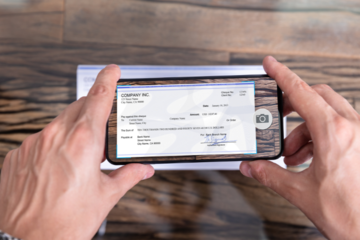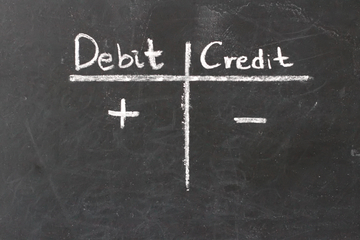Your car breaks down. You have an unexpected medical bill. A storm causes damage to your house that is not covered by insurance. A beloved pet becomes ill. You have a serious toothache or other urgent personal needs. These are examples of things that may create the need for an emergency loan.
This guide will help you understand more about emergency loans, the types of emergency loans available, and how to get an emergency loan.
Why Might Someone Need an Emergency Loan?
The cost of everything is going up. This is making it more difficult for the average person to make ends meet. With the majority of Americans living paycheck to paycheck, most people do not have any spare cash available if an emergency comes up.
Do I Need an Emergency Loan?
If you do not have the spare cash when an emergency comes, you may need an emergency loan. It is a common problem, and nothing to be ashamed of, happening to virtually everyone at some time in their life.
Good reasons for considering an emergency loan are:
- Your car broke down, and you cannot get to your job without it.
- You have a medical emergency and need to see the doctor.
- You need to pay the veterinarian bills for a beloved pet.
- Your utilities are in danger of being turned off.
- Your rent is past due.
The funds received from an emergency loan should pay for something urgent, or at a minimum time sensitive. It should also be a necessary expense. Seeing something on sale is not a good enough reason to take an emergency loan to buy it.
Another important consideration is if you will be able to afford the loan payments. Consider the ongoing payment amount. Can your budget handle this payment? If you cannot repay the loan, you may make your situation worse, not better.
Types of Emergency Loans
An emergency loan is the type of loan a borrower can receive quickly to cover the cost of an unexpected event. Common emergencies are paying auto repair bills, medical bills, fixing damage to a home caused by a storm, and funeral expenses.
What types of emergency loans are available?
Below are several types of emergency loans.
Personal Loans
A personal loan allows you to borrow a certain amount and receive it all at once, then make installment payments to repay the loan. The borrower repays the loan balance with interest.
A personal lender could be a bank, credit union, or online financial institution. Traditional banks and credit unions are usually slower to provide an approval decision to their customers. For this reason, many people who need an emergency loan count on online financial institutions to get the money they need more quickly than if they went to a branch of a bank or a credit union.
One benefit of a personal loan is being able to pay off a large purchase over time by making installment payments. Repayment terms vary from a few months to longer. A personal loan may not require any collateral.
Borrowers receive more flexibility with a personal loan than some other loan options. Personal loans do not usually have a restriction on the use of funds. You can use the loan proceeds to pay for what you want, such as medical bills, school tuition, a car repair, or a broken appliance.
Credit Card Cash Advance
If you have available credit on your credit card, you can take a cash advance. The amount you may receive as a cash advance, depends on your remaining credit available.
A cash advance usually has a higher interest rate than credit card purchases. However, since it is part of your existing credit limit, no further credit check or approval is needed. Many credit card companies allow a credit card holder to access a cash advance at an ATM.
Title Loans
If you own your car free and clear and there is not a lien on it by a lender, you can use the title as collateral to borrow against. A title loan is a secured loan. If you do not pay it off, the company can repossess the car and sell it. This option is suitable for those who own their vehicles and do not have other ways to get an emergency loan.
How to Get an Emergency Loan
Here are the steps for the personal loan application process:
- Documents: Gather the items you need to fill out the application. These include your driver’s license or state identification card, your social security number, and bank account information.
- Apply: Fill out the online application.
- Approval: Wait for approval.
The Benefits of Establishing a Relationship with a Lender
If you need an emergency loan, it might be easier to get one from a lender you have worked with before. If you have a good loan repayment history with a lender, getting a new loan approval may be easier as long as your financial circumstances have not changed.
3 Emergency Loan Alternatives
You may be able to raise some cash and not have to take an emergency loan.
Things to consider are:
1. Can you sell something? Can you sell your car and find an alternative means of transportation?
2. Can you take on a second job? Many people have a second job, freelance, or run a small business from home to earn extra money.
3. Ask your boss for an advance: Sometimes, it is as simple as asking your boss for an advance. If an employee has a sudden emergency, many employers help those in good standing with the company. It is one way that companies show that they care for their employees.
How to Build an Emergency Fund
CBS News reports that six out of ten Americans cannot cover an unexpected $500 emergency.
One strategy that might help to build up an emergency fund is putting a small amount of money aside from each paycheck. Start with $10. Many find this strategy helpful because the amount is small enough that they can commit to saving that same amount every week.
Once you succeed in putting away $500, do not stop there. Continue using this incremental process of placing money in your jar each week. Perhaps, try to save $20 each week. Even at a very slow rate, continue saving until you have a full three months’ expenses in reserve. If you lose your job, with an emergency fund covering three months of costs backing you up, you will have plenty of time to find another job.
How can Integra Credit help with an Emergency Loan?
Prudent financial management, budgeting, and planning ahead are skills that will help you tremendously. No matter how carefully you may plan, it is still possible for an emergency to come up. If you face an emergency and need a loan, apply for a personal loan.
Sources
Thanks to Inflation, 64% of Americans Now Live Paycheck to Paycheck
https://finance.yahoo.com/news/thanks-inflation-64-americans-now-140102090.html
United States Inflation Rate - March 2022
https://tradingeconomics.com/united-states/inflation-cpi
6 in 10 Americans don’t have $500 in savings
https://www.cbs19news.com/story/34248451/6-in-10-americans-dont-have-500-in-savings
4 types of emergency loans
https://www.bankrate.com/loans/personal-loans/types-of-emergency-loans/
What to Consider Before You Get an Emergency Loan
https://www.experian.com/blogs/ask-experian/how-do-i-get-an-emergency-loan/
What is an emergency loan?
https://www.bankrate.com/loans/personal-loans/what-is-an-emergency-loan/


